So, you've found the perfect property as your next – or first – buy-to-let. It's in fantastic condition, perhaps even brand new, and the place is ready to go and ready to rent. There are no furnishings or appliances to buy, and nothing needs attending to: all that's left is finding a tenant, receiving the rent, and enjoying the proceeds. Or is it?
There's much more to consider when buying a rental home. Not just the initial purchase costs, but also mortgage repayments and terms, ongoing maintenance, income tax, any service charges, ground rents and, of course, having a contingency plan for when the unexpected happens (which it probably will at some point).
Many of these expenses seem to either come as a surprise or get missed off the list, so we've put together this article to run through the common costs landlords encounter after buying a property so you can budget well and stay in the black.
MAKING IMPROVEMENTS
If you're buying a property to renovate before renting it out, make sure you've costed everything fully and have all the money available to pay for building works and materials. Embarking on a project with the expectation of funds at a later date is a risky strategy (unless you have a guarantee over when that money will arrive).
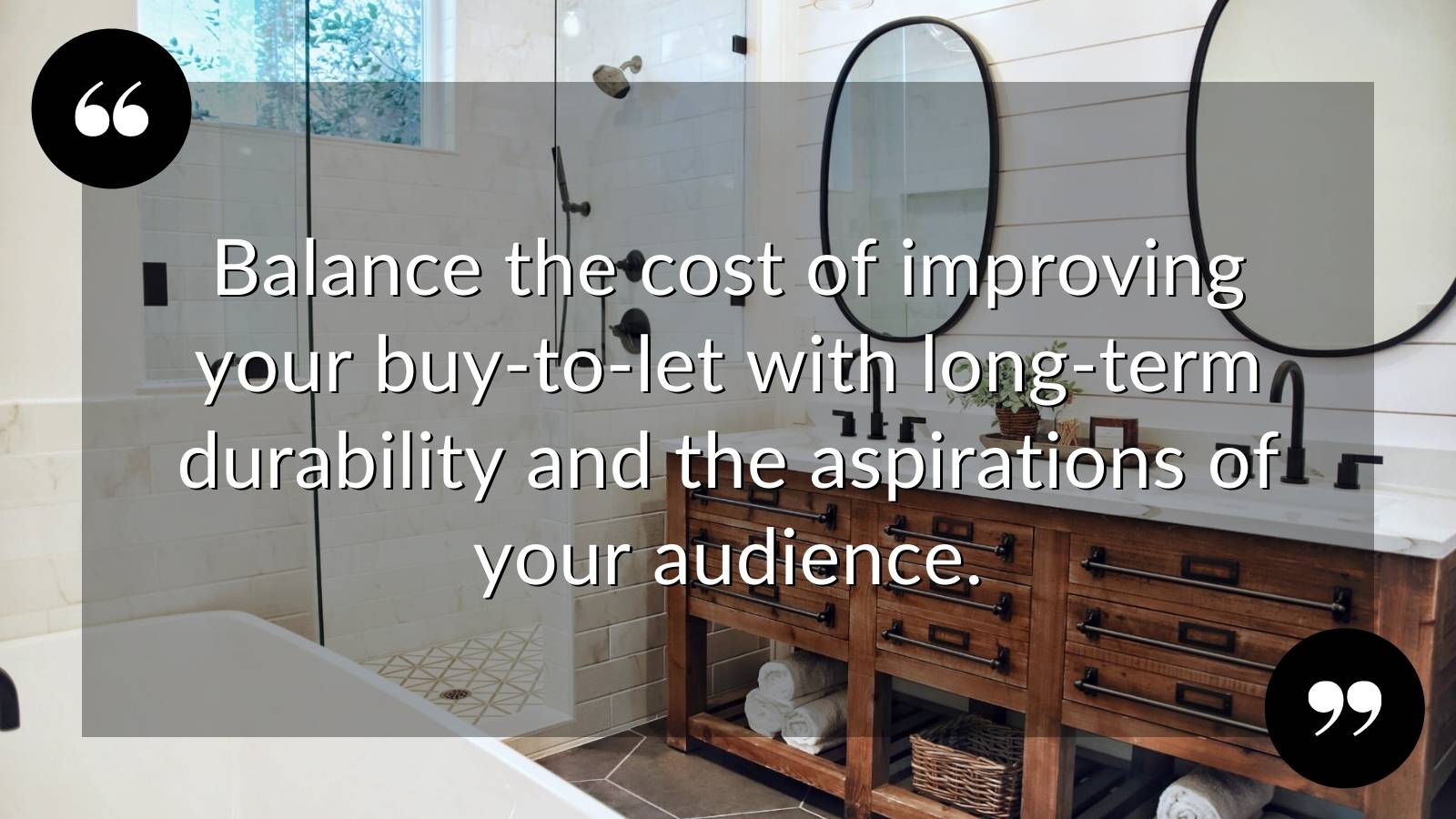
When undertaking renovations, the important thing is not to over-improve or under-improve. Think about your target market and the likely wear and tear on your property, then balance your expenditure with long-term durability and the aspirations of your audience.
Overspending for the area or likely tenant is simply money down the drain. It'll also be costly, time-consuming and quite boring if you need to keep replacing cheap appliances because they stop functioning, or if the rent goes down because the specification simply doesn't stand up to life.
MORTGAGE PAYMENTS
Mortgages offer low-cost borrowing that reduces your capital outlay and allows you to buy more or higher value property. However, whether or not you have a tenant, your mortgage will still need paying, and interest rates are not set in stone.
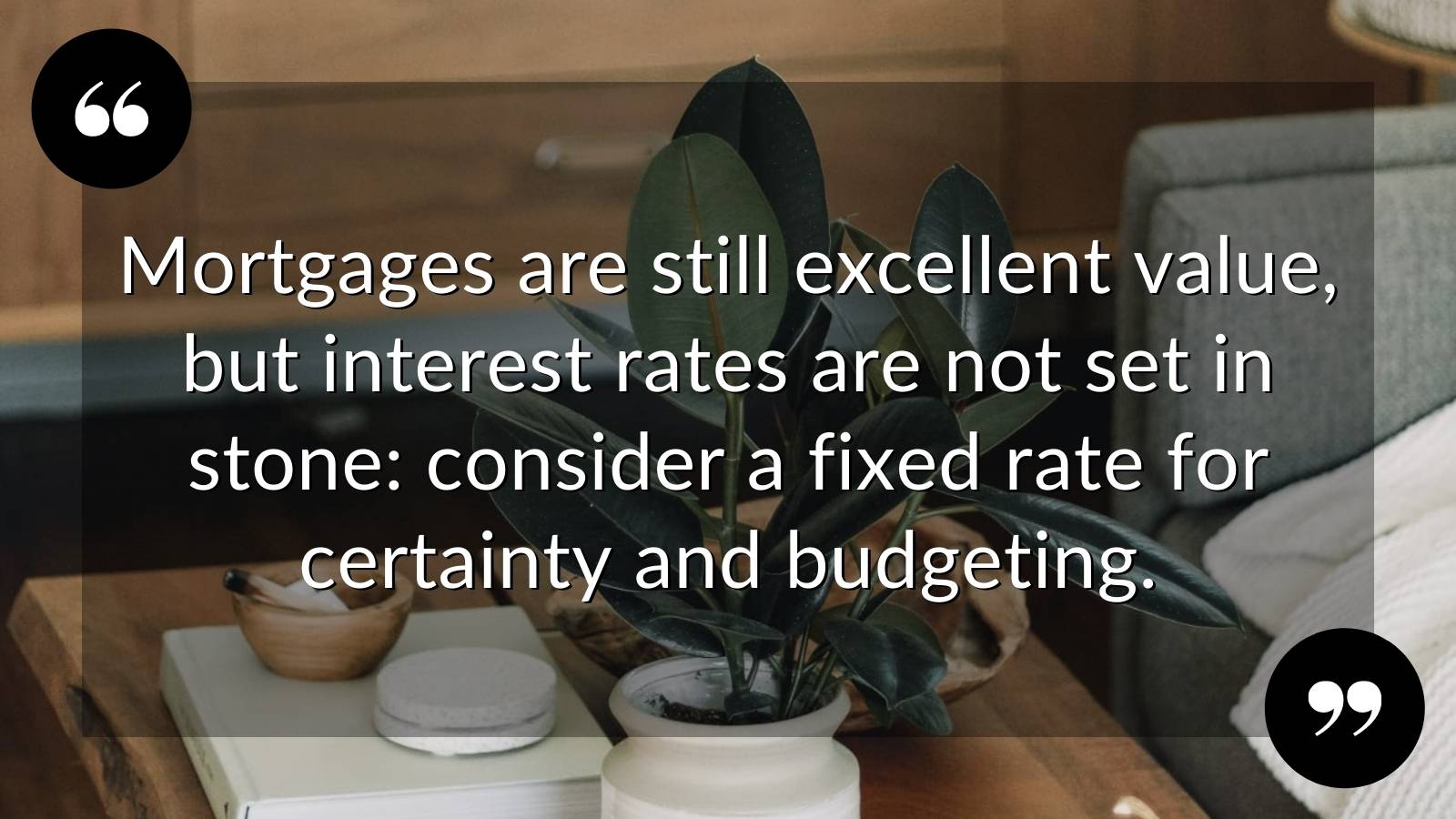
Today, mortgages are still cheap, but even a slight increase in the base rate can make a significant difference in your repayments, so keep that in mind when balancing how much to hold as debt against the size of equity cushion you want to retain.
You should also consider how long you're likely to hold a property when choosing which type of loan. Fixed rates are great for budget planning, but they almost always come with an early repayment penalty if you decide to sell before the fixed-rate period is up.
Think about how long you want to commit yourself. If you're sure you wish to hold a property for the long term, a five or ten-year fixed rate could be a good move. But if you're thinking of trading in a couple of years, perhaps a two-year tie-in is more appropriate.
For borrowing on renovation projects, some landlords take a standard variable rate loan for the initial purchase, then remortgage at an attractive fixed rate based on the higher value of the property once works are complete.
As with all borrowing, talk to an expert to fully understand your options.
MAINTENANCE & REPAIRS
It is quite shocking how many landlords don't allow for things like service charges, ground rent, ongoing maintenance and repairs. Whatever type of property you buy, from a freehold house to a leasehold apartment, it will need looking after.
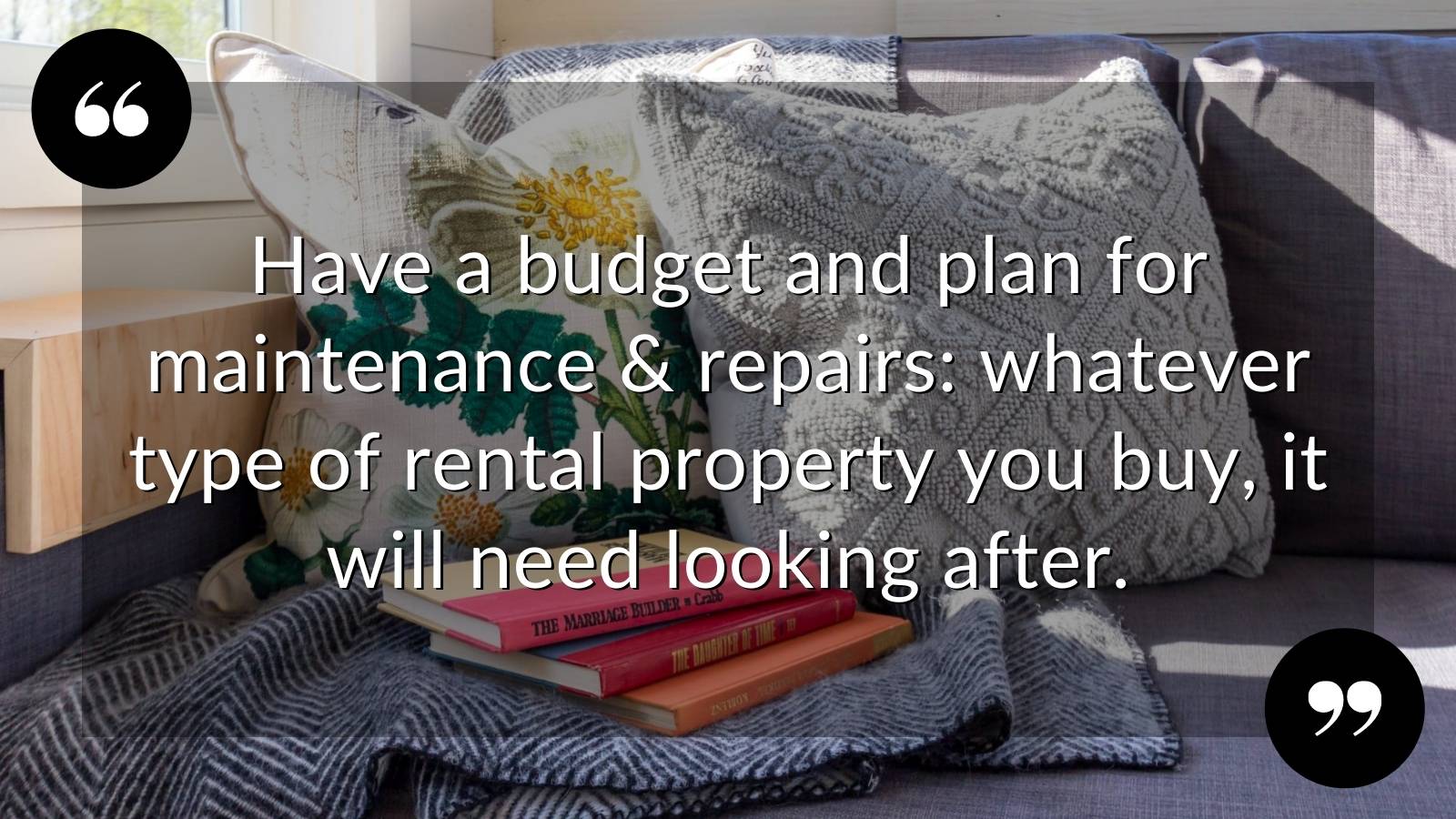
Annual gas safety certificates and five-yearly electrical certificates are mandatory. They should form part of your calculations, along with any other service contracts for equipment and appliances that require regular maintenance.
Depending on the property, service charges can widely differ. Victorian conversion flats usually have low service charges, but check how well the building has been looked after. A lack of maintenance up until now could mean a hefty repair bill down the line.
Apartments in buildings with facilities like gardens, lifts, a concierge, or cleaning for windows and communal areas usually attract higher rents, affluent tenants and extra service charges. These often sell to landlords looking at long-term capital gains.
For freehold properties with no service charge, regular maintenance is still required: the weather will still affect the exterior paintwork, and the interior will show signs of wear and tear.
Looking after your rental properties not only keeps them popular with tenants, it helps you achieve a higher rent and ensure the value of your property keeps up with the rest of the market.
PLANNING FOR TAX
The rent you receive is a taxable income, and it's extremely wise to work out your likely tax at the beginning of a tenancy and to put that sum aside each month, ready for when you submit your return.
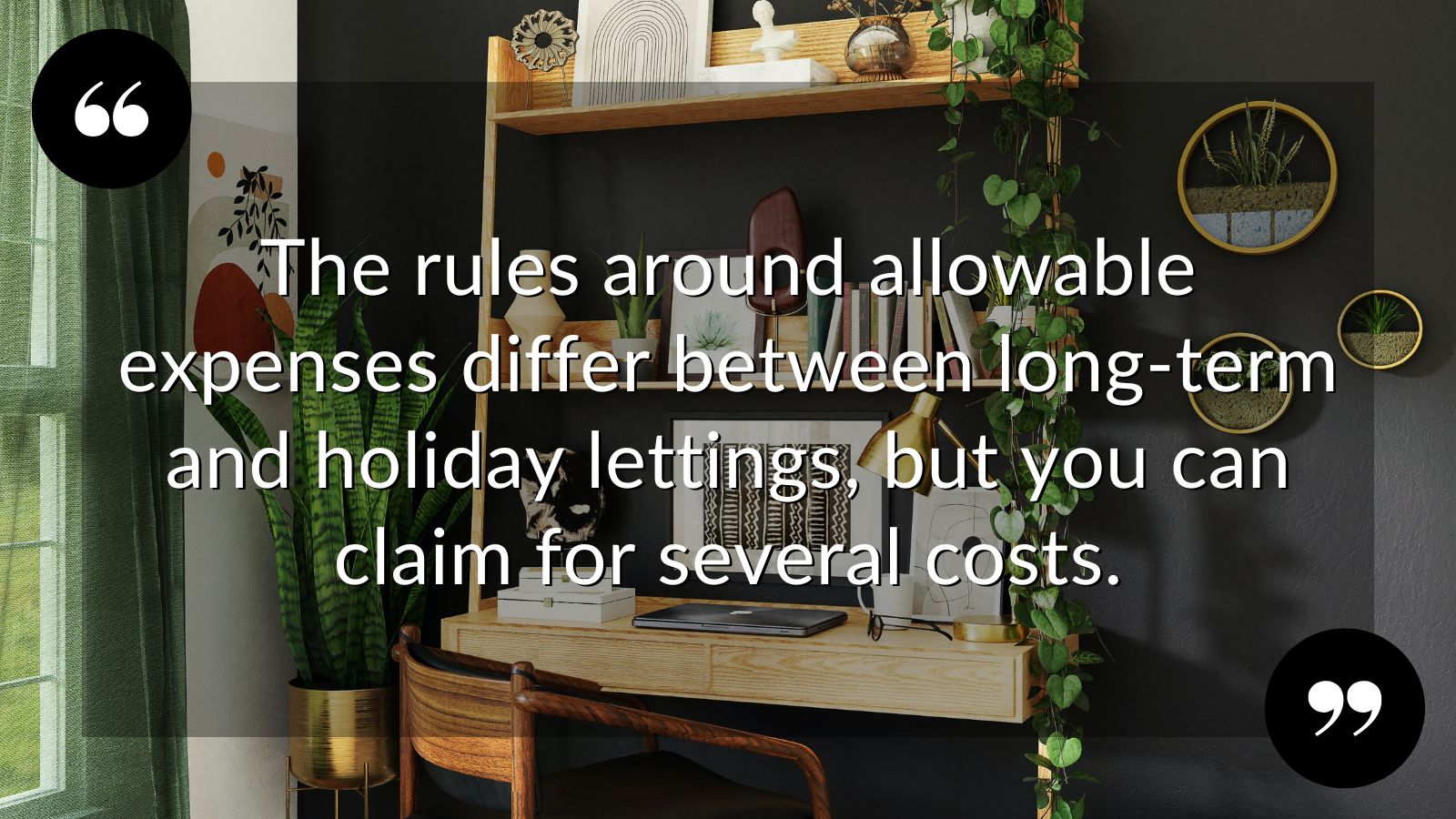
The rules around allowable expenses are different for long-term and holiday lettings, but you can claim for several costs, including agents' fees, service charges, insurance, maintenance & repairs, accountants fees, and interest relief on property loans.
For furnished lettings, you can also claim for the costs of replacing furniture or appliances, but you cannot claim for improvements to your property beyond wear and tear.
Full information is available at: https://www.gov.uk/renting-out-a-property/paying-tax
AGENTS FEES
You have many choices when it comes to choosing whether to use a letting or managing agent, from how many of their services you wish to use to how much you're happy to take on yourself.
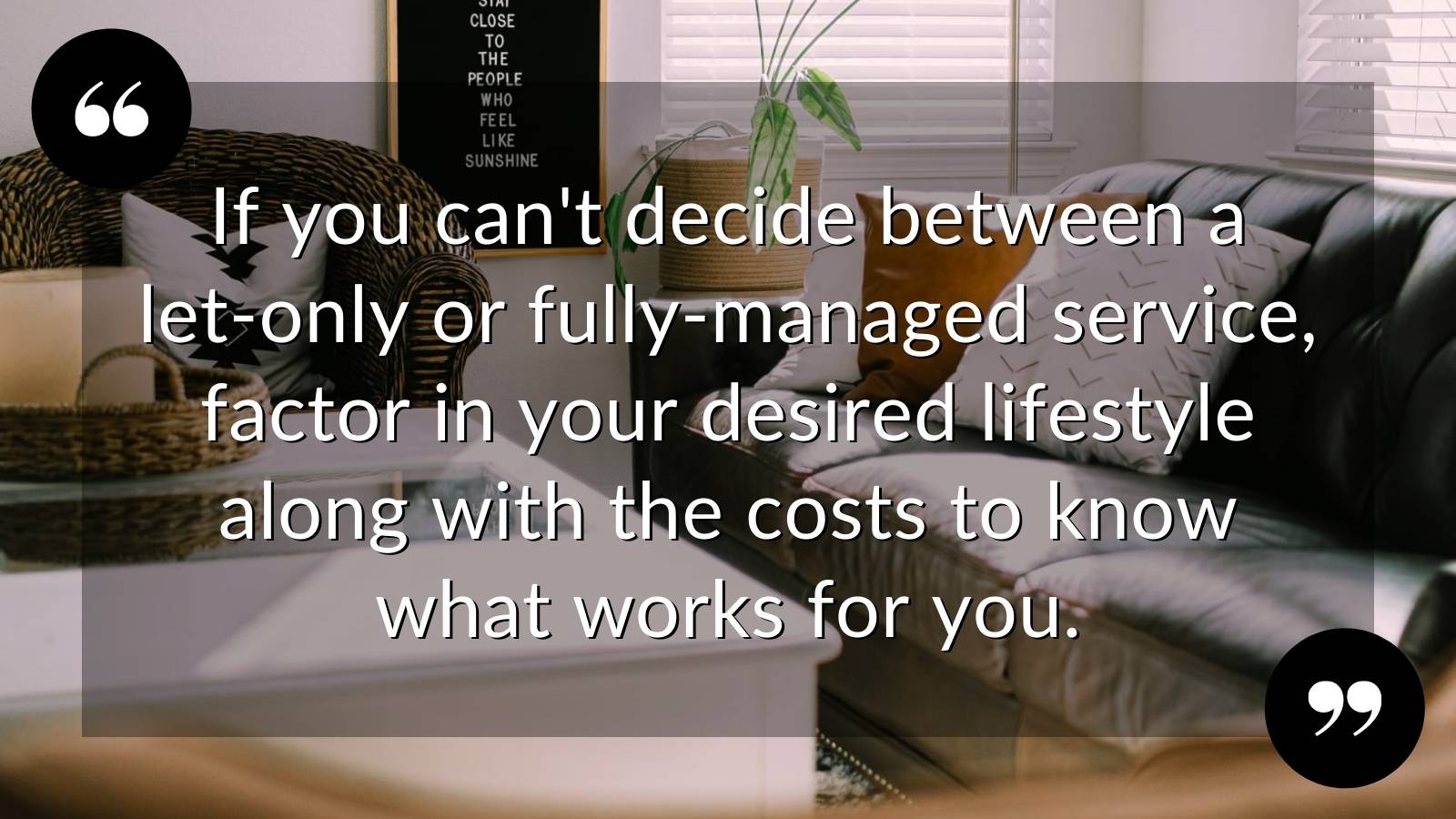
You could ask your agent to simply find you a tenant, then leave you to it; you might want the rent collection handled while you deal with repairs, safety checks, service charges, etc; or you might want everything done for you so you can get on with your life while all the administration and maintenance is taken care of.
Whichever option you choose, be sure to account for every cost in your calculations. It's wise to consider this before buying: think carefully about the landlord life you want and the responsibilities you wish to retain.
What's next for you?
While it's a nice thought that your property will never be empty or require any expenditure, it isn't a sound business model and could leave you open to financial stress and emotional annoyance. So always do a reality check to ensure the property you want to buy is a good fit for your model and offers the return you're hoping for.
If you'd like to discuss anything about being a landlord, or you have a rental property you'd like us to look after for you, please give us a call on 02920 310555 or drop us a message at info@harryharper.co.uk

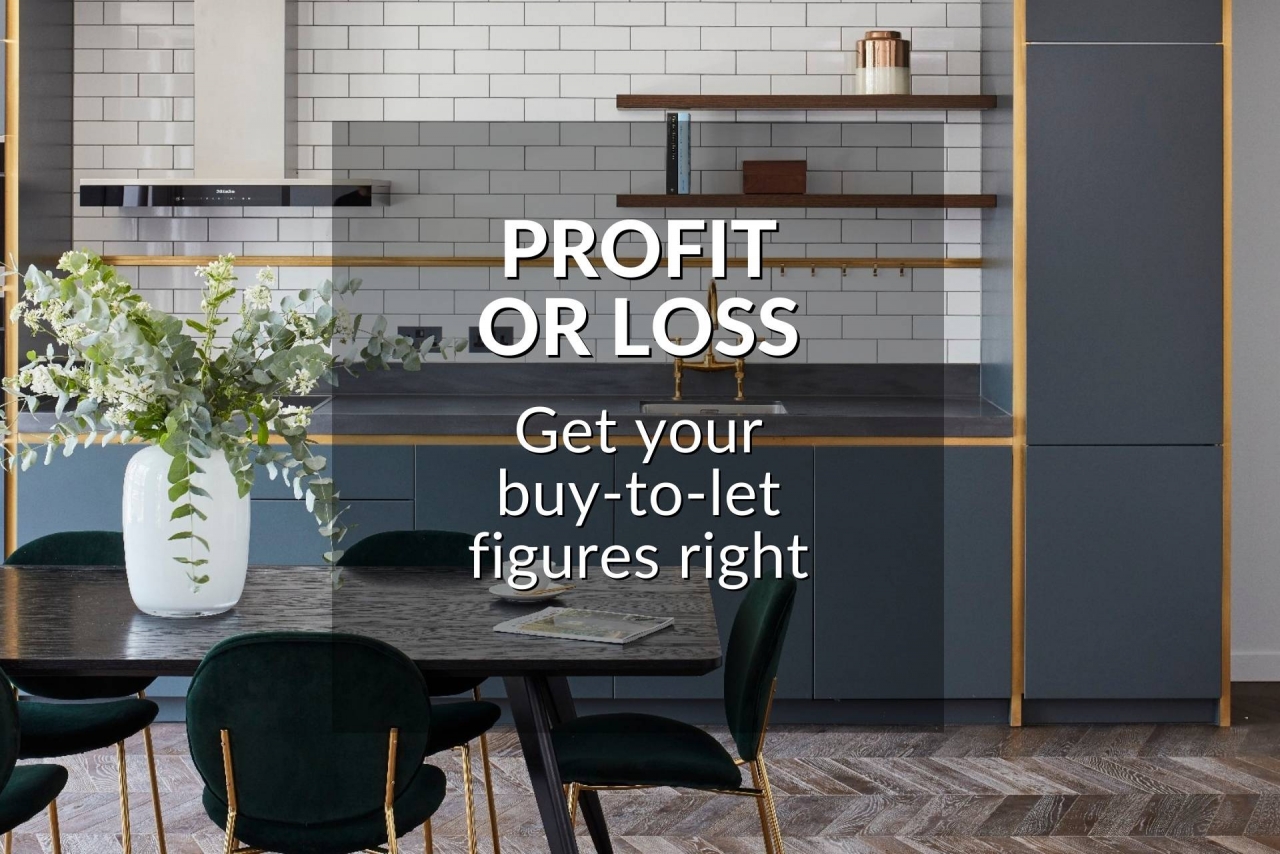
 By
By 
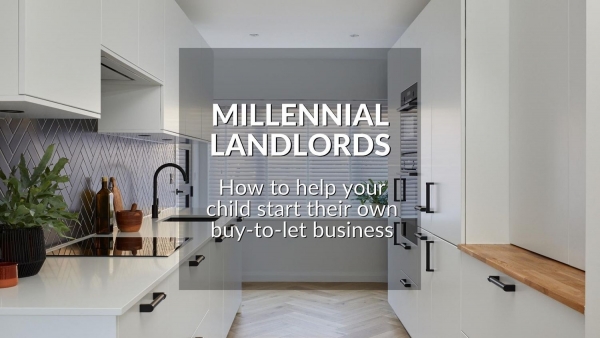

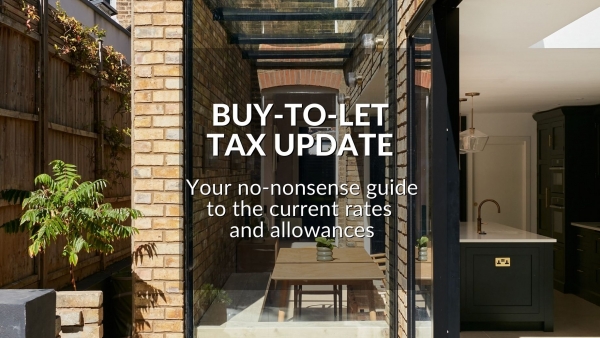
Share this with
Email
Facebook
Messenger
Twitter
Pinterest
LinkedIn
Copy this link